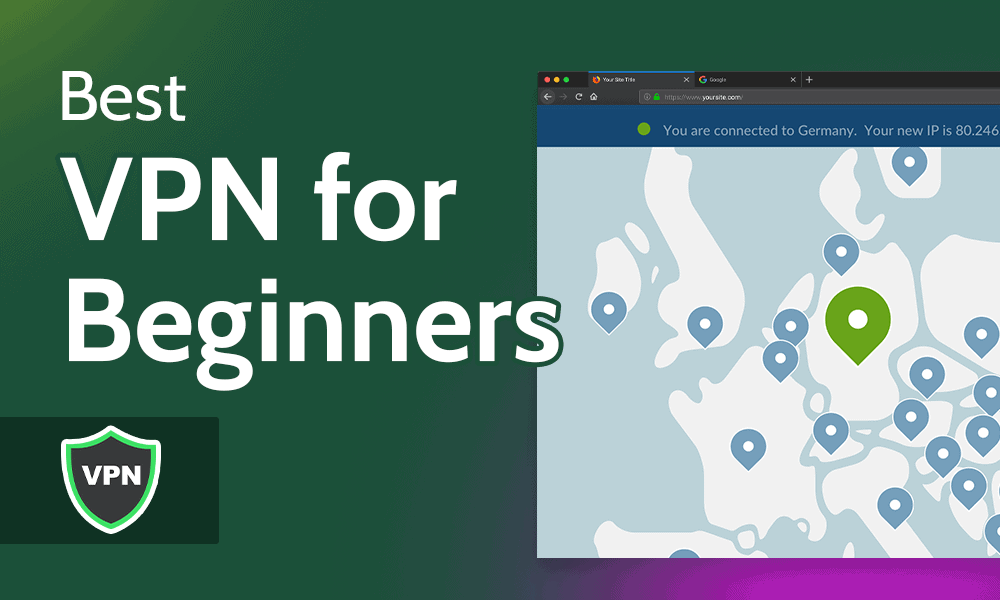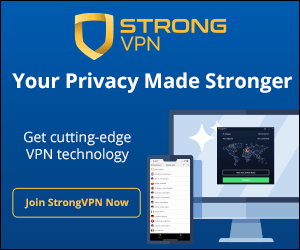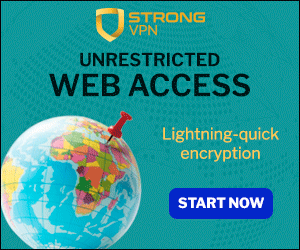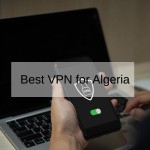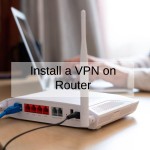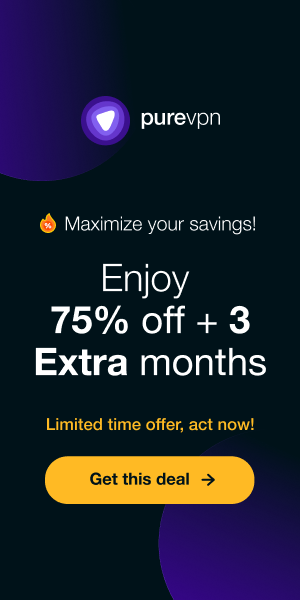In today's digital landscape, where the internet plays a pivotal role in our daily lives, ensuring online privacy and security has become increasingly crucial. This is where Virtual Private Networks (VPNs) come into play. VPNs serve as powerful tools for internet users worldwide, offering a secure connection between their devices and the internet. Whether you're a novice navigating the online realm or an experienced user seeking enhanced security measures, understanding how VPNs work and how to use them effectively is paramount.

Understanding the Basics of VPNs
At the core of VPN technology lies its ability to create a secure tunnel between your device and the internet. But what exactly does this mean? Essentially, a VPN encrypts your internet traffic, making it virtually impossible for unauthorized entities to intercept or decipher your data. By rerouting your connection through a private server operated by the VPN provider, it adds an additional layer of security to your vpn online activities. This process not only shields your data from potential threats such as hackers and cybercriminals but also ensures anonymity by masking your IP address.
Importance of VPN for Beginners
For beginners venturing into the realm of online security, understanding the significance of VPNs is paramount. Firstly, VPNs provide a crucial layer of security, safeguarding sensitive information such as passwords, financial transactions, and personal data from prying eyes. Additionally, VPNs enable users to bypass geographical restrictions and access region-locked content, whether it's streaming services, websites, or social media platforms. This unrestricted access to the internet ensures a more enriching online experience, free from censorship or limitations.
Choosing the Right VPN Service
With a plethora of VPN providers flooding the market, selecting the right one can be overwhelming, especially for beginners. When choosing a VPN service, it's essential to consider various factors such as security features, vpn gateway locations, connection speeds, and user-friendliness. While premium VPN services offer advanced features and robust security measures, beginners can opt for reputable free VPNs that provide basic functionality without compromising on security.
Installing and Setting Up a VPN
Getting started with a VPN is relatively straightforward, thanks to user-friendly interfaces and intuitive setup processes. Begin by downloading the VPN application from the provider's website or app store. Most VPN services offer apps compatible with various devices and operating systems, ensuring compatibility across smartphones, tablets, computers, and even routers. After downloading the app, create an account by providing your email address and selecting a secure password. Some VPNs may require additional information for account verification purposes. Once your account is set up, proceed to configure the VPN settings according to your preferences. This includes choosing protocols, selecting server locations, and enabling additional security features such as kill switches or split tunneling. With the VPN app installed and configured, you're now ready to establish a secure connection and enjoy a safer, more private internet browsing experience.
Connecting to a VPN Server
After setting up your VPN, the next step is to connect to a server. This process involves selecting a server location based on your specific needs and preferences. For instance, if your primary goal is to access geo-restricted content or websites blocked in your region, you'll want to choose a server located in the desired country or region. Most VPN apps provide a list of server locations to choose from, allowing you to select the one that best suits your requirements.
Once you've chosen a server location, simply click on the connect button within the VPN app to establish a secure connection. Depending on the VPN service and server load, the connection process may take a few moments. Once connected, your internet traffic will be encrypted and routed through the VPN server, ensuring that your online activities remain private and secure.
Using VPN Across Different Devices
One of the key advantages of VPNs is their compatibility across various devices and platforms. Whether you're using a smartphone, tablet, computer, or even a router, VPNs can be easily configured to provide secure internet access on all your devices.
For mobile devices such as smartphones and tablets, simply install the VPN app from the respective app store and follow the setup instructions provided by the VPN provider. Once installed, you can connect to a VPN server with just a few taps, ensuring that your mobile internet browsing remains private and secure.
Similarly, on computers and laptops, vpn download software from the provider's website and install it on your device. Follow the setup instructions to configure the VPN settings according to your preferences. Once configured, you can connect to a VPN server with ease, protecting your online activities from potential threats and surveillance.
Ensuring Security and Privacy
While VPNs offer enhanced security and privacy, it's essential to take additional measures to maximize their effectiveness. One crucial aspect to consider is the choice of encryption protocols. Opt for VPN protocols with strong encryption, such as OpenVPN or IKEv2, to ensure that your data remains protected from potential breaches and interceptions.
Another essential feature to look out for is the kill switch functionality. A kill switch automatically disconnects your device from the internet if the VPN connection drops unexpectedly, preventing any data leaks or exposure of your sensitive information.
By implementing these security measures and choosing a reputable VPN service, you can ensure that your online activities remain private and secure, regardless of your location or device.
Troubleshooting Common VPN Issues
Despite their effectiveness, VPNs may encounter occasional issues that can affect user experience. Common problems include connection drops, slow internet speeds, or compatibility issues with certain devices or applications.
If you experience frequent connection drops or connectivity issues, try switching to a different VPN server or contacting customer support for assistance. Additionally, to improve internet speeds while using a VPN, consider connecting to servers closer to your physical location or upgrading to a premium VPN plan that offers faster connections.
By addressing these common issues and implementing best practices for VPN usage, you can ensure a seamless and secure online experience, vpn free from potential threats and surveillance.
Here's a detailed comparison of how to use a VPN for beginners across various aspects:
Understanding VPN Basics:
- A VPN or Virtual Private Network free creates a secure and encrypted connection between your device (computer, smartphone, etc.) and the internet. This connection is routed through a VPN server, masking your IP address and encrypting your internet traffic, enhancing privacy and security.
Choosing a VPN Provider:
- Beginners should select a reputable VPN provider that offers user-friendly apps, strong encryption, a no-logs policy, and a large server network. Reading reviews and comparing features can help in choosing the right VPN service.
Downloading and Installing VPN Software:
- Most VPN providers offer dedicated apps for various devices and operating systems. Beginners should download and install the VPN app compatible with their device from the provider's website or app store.
Logging In and Connecting to a VPN Server:
- After installing the VPN app, beginners need to log in using their account credentials. Once logged in, they can choose a VPN server location from the list provided by the app and click on the "Connect" button to establish a VPN connection.
Understanding VPN Server Locations:
- VPN apps typically offer a list of server locations in different countries around the world. Beginners should choose a server location based on their specific needs, such as accessing geo-restricted content or optimizing connection speed.
Using the VPN Connection:
- Once connected to a VPN server, beginners can use the internet as they normally would. All internet traffic is encrypted and routed through the VPN server, providing privacy and security from potential threats like hackers, ISPs, and government surveillance.
Checking VPN Connection Status:
- Beginners should regularly check the VPN app to ensure that the VPN connection is active and secure. Most VPN apps display a status indicator or notification to indicate when the VPN is connected.
Customizing VPN Settings:
- VPN apps often come with customizable settings that allow users to tailor their VPN experience. Beginners can explore these settings to adjust features like protocol selection, automatic connection, and kill switch functionality.
Disconnecting from the VPN:
- When finished using the VPN, beginners should disconnect from the VPN server to revert to their regular internet connection. This can be done by simply clicking on the "Disconnect" button in the VPN app.
Troubleshooting VPN Issues:
- In case of any connectivity or performance issues, beginners should refer to the VPN provider's support resources, including FAQs, troubleshooting guides, and customer support channels, for assistance.
Using a VPN for beginners involves selecting a reliable VPN provider, downloading and installing the VPN app, connecting to a VPN server, understanding server locations, using the internet securely, checking connection status, customizing settings, and troubleshooting issues as needed. With these basic steps, beginners can enjoy enhanced privacy and security while browsing the internet with a VPN.
Tips for Optimizing VPN Experience
To ensure a seamless and secure VPN experience, consider implementing the following tips:
Regularly Update the VPN App: Stay updated with the latest security patches and features by keeping your VPN app up to date. Developers frequently release updates to address vulnerabilities and improve performance, so it's essential to install updates promptly to maintain optimal security.
Avoid Public Wi-Fi Without VPN Protection: When connecting to public Wi-Fi networks, always use a VPN to encrypt your data and prevent potential security threats. Public Wi-Fi networks are notorious for their lack of security, making them prime targets for hackers and cybercriminals. By using a VPN, you can safeguard your sensitive information and protect yourself from potential attacks.
Mastering the use of a VPN is essential for beginners seeking to enhance their online security and privacy. By understanding the basics of VPN technology, selecting the right VPN service provider, and following best practices for usage, beginners can navigate the online world with confidence and peace of mind. With the right tools and knowledge at their disposal, users can enjoy a safer and more unrestricted internet experience, free from potential threats and surveillance.
How to Set Up and Use a VPN for Beginners
Setting up and using a VPN may seem daunting at first, but it's actually quite straightforward. Here's a step-by-step guide to help you get started:
Choose the Right VPN Provider: Before diving into the setup process, you'll need to choose a reliable VPN service provider. Look for one that offers user-friendly apps, robust security features, a wide range of server locations, and good customer support.
Download and Install the VPN App: Once you've selected a VPN provider, visit their website or app store to download the VPN app onto your device. Most VPN providers offer apps for various platforms, including Windows, macOS, iOS, and Android.
Create an Account: After downloading the app, you'll need to create an account with the VPN provider. This typically involves providing your email address and creating a secure password.
Log In and Connect: Once your account is created, log in to the VPN app using your credentials. From there, you can connect to a VPN server by selecting a server location from the app's interface and clicking the connect button.
Enjoy Secure Browsing: Congratulations! You're now connected to a VPN server, and your internet traffic is encrypted and secure. You can now browse the web, stream content, and access online services with peace of mind, knowing that your data is protected from prying eyes.
Best VPN Right Now
With numerous VPN providers available in the market, choosing the right one can be overwhelming. To help you narrow down your options, here are some of the best VPNs currently available:
ExpressVPN: Known for its blazing-fast speeds, strong encryption, and user-friendly apps, ExpressVPN is a top choice for both beginners and experienced users alike.
NordVPN: With a vast network of servers spanning across the globe, NordVPN offers excellent performance, advanced security features, and reliable customer support.
Surfshark: Despite being relatively new to the market, Surfshark has quickly risen to prominence thanks to its affordable pricing, unlimited simultaneous connections, and robust privacy protections.
Easy Way to Install and Use a VPN for Beginners
Installing and using a VPN is easier than you might think, especially with user-friendly apps and intuitive interfaces. Here's a simplified guide to help you get started:
Download the App: Start by downloading the VPN app onto your device from the provider's website or app store.
Create an Account: After downloading the app, create an account with the VPN provider by providing your email address and creating a password.
Log In and Connect: Once your account is created, log in to the VPN app using your credentials. From there, you can connect to a VPN server with just a few clicks.
Enjoy Secure Browsing: Once connected, you can enjoy secure and private browsing, streaming, and downloading without worrying about hackers, surveillance, or geo-restrictions.
Configuration of a VPN for Beginners
When it comes to configuring a VPN, you have two main options: automatic configuration and manual configuration.
Automatic Configuration
Many VPN providers offer automatic configuration options, where the app handles all the technical details for you. Simply download the app, log in, and connect to a server with a single click. This hassle-free approach is perfect for beginners who want to get up and running quickly without any complicated setup steps.
Manual Configuration
If you prefer more control over your VPN settings, you can opt for manual configuration. This involves entering server information, selecting encryption protocols, and configuring other advanced settings manually. While manual configuration requires a bit more technical know-how, it allows for greater customization and flexibility.
Why and When to Use a VPN for Beginners
There are several reasons why you might want to use a VPN, including:
Enhanced Security: A VPN encrypts your internet traffic, making it virtually impossible for hackers, government agencies, or ISPs to intercept or monitor your online activities.
Privacy Protection: By masking your IP address and encrypting your data, a VPN ensures that your online activities remain anonymous and private, protecting your personal information from prying eyes.
Access to Restricted Content: With a VPN, you can bypass geo-restrictions and access content that may be blocked or censored in your region, such as streaming services, social media platforms, or news websites.
Secure Public Wi-Fi: When connected to public Wi-Fi networks, such as those found in coffee shops, airports, or hotels, a VPN adds an extra layer of security, preventing potential hackers from intercepting your data.
Online Freedom: Using a VPN allows you to browse the internet freely and securely, without worrying about censorship, surveillance, or restrictions imposed by governments or ISPs.
Why Should You Use a VPN for Beginners
As a beginner, using a VPN offers numerous benefits and advantages, including:
Ease of Use: Most VPN apps are designed with beginners in mind, featuring simple interfaces and one-click connectivity options that make it easy to get started.
Enhanced Security: By encrypting your internet traffic and masking your IP address, a VPN protects your personal information from hackers, snoopers, and surveillance.
Access to Global Content: With a VPN, you can access geo-restricted content from anywhere in the world, allowing you to stream your favorite movies, TV shows, and sports events without limitations.
Peace of Mind: Using a VPN gives you peace of mind knowing that your online activities are private and secure, even when connected to unsecured or public Wi-Fi networks.
Affordability: Many VPN providers offer affordable pricing plans with flexible subscription options, making it easy for beginners to enjoy the benefits of a VPN without breaking the bank.
How to Get a VPN for Beginners
Getting a VPN for beginners is as easy as following these simple steps:
Research: Start by researching different VPN providers to find one that meets your needs and budget.
Download: Once you've chosen a VPN provider, visit their website or app store to download the VPN app onto your device.
Sign Up: Create an account with the VPN provider by providing your email address and creating a password.
Install: Follow the installation instructions provided by the VPN app to install it on your device.
Connect: Log in to the VPN app using your credentials and connect to a server location of your choice to start browsing securely.
Advantages and Benefits of Using a VPN for Beginners
Using a VPN offers numerous advantages and benefits, including:
Privacy Protection: A VPN encrypts your internet traffic, ensuring that your online activities remain private and secure, even on unsecured or public Wi-Fi networks.
Access to Restricted Content: With a VPN, you can bypass geo-restrictions and access content that may be blocked or censored in your region, such as streaming services, social media platforms, or news websites.
Enhanced Security: By masking your IP address and encrypting your data, a VPN protects your personal information from hackers, snoopers, and surveillance.
Online Anonymity: Using a VPN allows you to browse the internet anonymously, without revealing your true IP address or location to websites, advertisers, or third parties.
Global Connectivity: With servers located around the world, a VPN provides global connectivity, allowing you to browse the internet as if you were in a different country, with access to local content and services.
FAQs About VPNs for Beginners
What is the best free VPN for beginners?
- The best free VPN for beginners varies depending on individual preferences and requirements. Some popular options include TunnelBear, Windscribe, and ProtonVPN. It's essential to choose a reputable VPN provider that offers adequate security features and server locations.
Can I use a VPN on my smartphone?
- Yes, VPNs are compatible with smartphones and can be easily installed and configured on both iOS and Android devices. Simply download the VPN app from the respective app store, follow the setup instructions, and connect to a server to secure your mobile internet connection.
Will using a VPN slow down my internet speed?
- While using a VPN may result in slightly slower internet speeds due to the encryption process and routing of internet traffic through remote servers, the impact is usually minimal. Choosing a VPN server closer to your physical location and opting for a premium VPN service can help mitigate any slowdowns.
Is it legal to use a VPN?
- In most countries, using a VPN is legal and widely accepted as a legitimate tool for enhancing online privacy and security. However, it's essential to adhere to local regulations and avoid using VPNs for illegal activities, such as accessing copyrighted content or engaging in cybercrime.
Do I need technical knowledge to use a VPN?
- No, using a VPN does not require extensive technical knowledge. Most VPN providers offer user-friendly apps with intuitive interfaces, making it easy for beginners to install, configure, and use VPNs on their devices. Additionally, many VPN services offer comprehensive support resources and customer assistance to help users troubleshoot any issues they may encounter.

